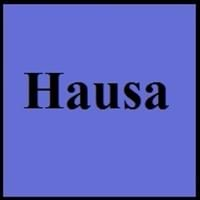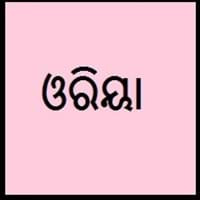Hausa and Oriya
National Language
Gambia, Nigeria
India
Second Language
Nigeria
Not spoken in any of the countries
Speaking Continents
Africa
Asia
Minority Language
Benin, Cameroon, Cote d'Ivoire, Ghana, Niger, Sudan, Togo
Not spoken in any of the countries
Regulated By
Not Available
Not Available
Interesting Facts
- Hausa language is the most important and the best known of the Chadic branch.
- There are about one-fourth of Hausa words come from Arabic.
- The earliest literature in Oriya was traced in 7th to 9th centuries.
- Since Odia is having a long literary history and has not borrowed largely from other languages, it is the 6th classical language in India.
Similar To
Not Available
Bengali and Assamese
Derived From
Not Available
Sanskrit Language
Alphabets in
Hausa-Alphabets.jpg#200
Oriya-Alphabets.jpg#200
Scripts
Latin
Bengali, Odia alphabet (Brahmic)
Writing Direction
Not Available
Left-To-Right, Horizontal
Hello
sannu
ନମସ୍କାର (namascara)
Thank You
gode ku
ଧନ୍ୟବାଦ୍ (dhanyabaad)
How Are You?
yaya dai
କେମିତି ଅତ୍ଚନ୍ଥି? (kemiti achanti?)
Good Night
mai kyau dare
ସୁଭରାତ୍ର (shubharaatra)
Good Evening
barka da yamma
ସୁଭସନ୍ଧ୍ୟା (subha sandhya)
Good Afternoon
barka da rana
ସୁଭ ଖରା ବେଳ (shubha kharaa bela)
Good Morning
mai kyau safe
ସୁପ୍ରଭାତ (suprabhaata)
Please
Don Allah
Not Available
Sorry
yi hakuri
ମୁଁ ଦୁଃଖିତ (mū duḥkhita)
Bye
sai anjima
ସୁବିଦାୟ (shubidaaya)
I Love You
Ina son ku
ମୁଁ ତୁମକୁ ଭଲ ପାଏ (mu tumoku bhala paye)
Excuse Me
gafara dai
କ୍ଷମା କରିବେ (kyamā karibe)
Dialect 1
Gaananci
Baleswari
Where They Speak
Ghana
India
Dialect 2
Kurhwayanci
Ganjami
Where They Speak
Niger
India
Dialect 3
Daragaram
Kosli
Where They Speak
Niger
India
How Many People Speak
Not Available
Second Language Speakers
Not Available
Native Name
حَوْسَ (ḥawsa)
ଓଡ଼ିଆ (ōṛiyā)
Alternative Names
Abakwariga, Habe, Haoussa, Hausawa, Kado, Mgbakpa
Odisha, Odri, Odrum, Oliya, Uriya, Utkali, Vadiya, Yudhia
French Name
haoussa
oriya
German Name
Haussa-Sprache
Oriya-Sprache
Pronunciation
Not Available
[ˈoɽia]
Ethnicity
Hausa–Fulani people
Odias
Language Family
Afro-Asiatic Family
Indo-European Family
Subgroup
Chadic
Indo-Iranian
Branch
Not Available
Indic
Early Forms
No early forms
No early forms
Standard Forms
Hausa
Standard Odia
Signed Forms
Not Available
Indian Signing System
Scope
Individual
Individual, Macrolanguage
ISO 639 6
Not Available
Not Available
Glottocode
haus1257
macr1269
Linguasphere
19-HAA-b
No data available
Language Type
Living
Living
Language Linguistic Typology
Subject-Verb-Object
Subject-Object-Verb
Language Morphological Typology
Fusional
Not Available
All Hausa and Oriya Dialects
Most languages have dialects where each dialect differ from other dialect with respect to grammar and vocabulary. Here you will get to know all Hausa and Oriya dialects. Various dialects of Hausa and Oriya language differ in their pronunciations and words. Dialects of Hausa are spoken in different Hausa Speaking Countries whereas Oriya Dialects are spoken in different Oriya speaking countries. Also the number of people speaking Hausa vs Oriya Dialects varies from few thousands to many millions. Some of the Hausa dialects include: Gaananci, Kurhwayanci. Oriya dialects include: Baleswari , Ganjami. Also learn about dialects in South American Languages and North American Languages.
Hausa and Oriya Speaking population
Hausa and Oriya speaking population is one of the factors based on which Hausa and Oriya languages can be compared. The total count of Hausa and Oriya Speaking population in percentage is also given. The percentage of people speaking Hausa language is 0.52 % whereas the percentage of people speaking Oriya language is 0.50 %. When we compare the speaking population of any two languages we get to know which of two languages is more popular. Find more details about how many people speak Hausa and Oriya on Hausa vs Oriya where you will get native speakers, speaking population in percentage and native names.
Hausa and Oriya Language Codes
Hausa and Oriya language codes are used in those applications where using language names are tedious. Hausa and Oriya Language Codes include all the international language codes, glottocodes and linguasphere.





